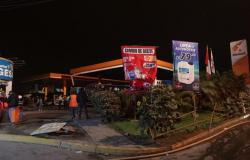Listen to this article
https://w.soundcloud.com/player/?url=https%3A%2F%2Fapi.soundcloud.com%2Ftracks%2F1811049534%3Fsecret_token%3Ds-kshVBhPOiPQ
José Mujica is a politician and former guerrilla who was president of Uruguay between 2010 and 2015. He belonged to the National Liberation Movement-Tupamaros between the sixties and seventies, he was imprisoned by the dictatorship until the eighties and then, in democracy, he began his political career. As president, Mujica became a reference for the Latin American left, known for his austere lifestyle and his commitment to the fight against poverty and in favor of social equality.
From guerrilla to minister
Born in Montevideo in 1935, José Mujica spent much of his youth working in the fields. He soon became interested in agricultural and social issues, which would lead him to become involved in politics. He first joined the centre-right National Party, but later oriented towards left-wing movements. Uruguay experienced an economic peak until the mid-1950s, but began the 1960s with stagnation and an inflationary spiral that especially harmed the middle and lower classes.
In 1962, Mujica left the National Party and joined the Tupamaros, an urban guerrilla movement inspired by the Cuban Revolution and Marxist ideas. There he met Lucía Topolansky, a future deputy and vice president who would be his partner from then on. Mujica participated in urban guerrilla actions and was imprisoned several times, the last in 1972, at the beginning of the civil-military dictatorship. He spent most of his confinement in solitary confinement and was finally released in 1985, when Uruguay returned to democracy. That experience would mark his focus on conciliation, dialogue and social peace.
After his release, Mujica entered electoral politics. He joined the Popular Participation Movement, a faction of the Frente Amplio, a leftist coalition founded in the 1970s. In 1995 he was elected deputy and in 1999 senator, positions from which he contributed to the legalization of informal labor activities and to improving social security for urban workers and farmers. He later served as Minister of Livestock, Agriculture and Fisheries between 2005 and 2008 during the first presidency of Tabaré Vázquez. His work and popularity led him to the presidency in 2010.
Mujica, a reference for the Latin American left
During his term until 2015, Mujica implemented policies and programs aimed at inclusion and social well-being. The Equal Marriage Law, approved in 2013, was one of the first in Latin America. The Together Plan focused on improving the housing conditions of the poorest families, and the continuation of the Equity Plan maintained financial support for households with children in vulnerable situations. However, Mujica also failed in other initiatives, such as his attempted educational reform.
At the same time, the Uruguayan economy continued to grow and poverty continued to fall steadily. The Mujica Government diversified the productive matrix by investing in agriculture, which strengthened Uruguay’s position as a food exporter. Another pioneering initiative, this time in the world, was the legalization of the production, trade and consumption of cannabis in 2013. At the international level, Mujica sought a diplomatic balance and promoted dialogue for the resolution of conflicts in Latin America. Under his leadership, Uruguay consolidated its presence in regional organizations such as Mercosur and Unasur, taking advantage of the fact that the majority of South America also had left-wing governments.
Furthermore, Mujica’s figure was enhanced thanks to his charisma and simplicity. During and after his mandate he has advocated for the self-determination of the people and the sovereignty of the Latin American countries. Known for his austere lifestyle and concern for environmental challenges, he has also called on the international community to adopt a more humane and less consumerist approach, seeking sustainable development for coming generations. After completing his presidential term, Mujica returned to his seat in the Uruguayan Senate from 2015 to 2018 and in 2020, and has continued to be active in the Popular Participation Movement. On April 29, he announced that he had a tumor in his esophagus.
This article was written with the help of Jasper, an AI editorial assistant. It was then reviewed and corrected by an EOM editor.






